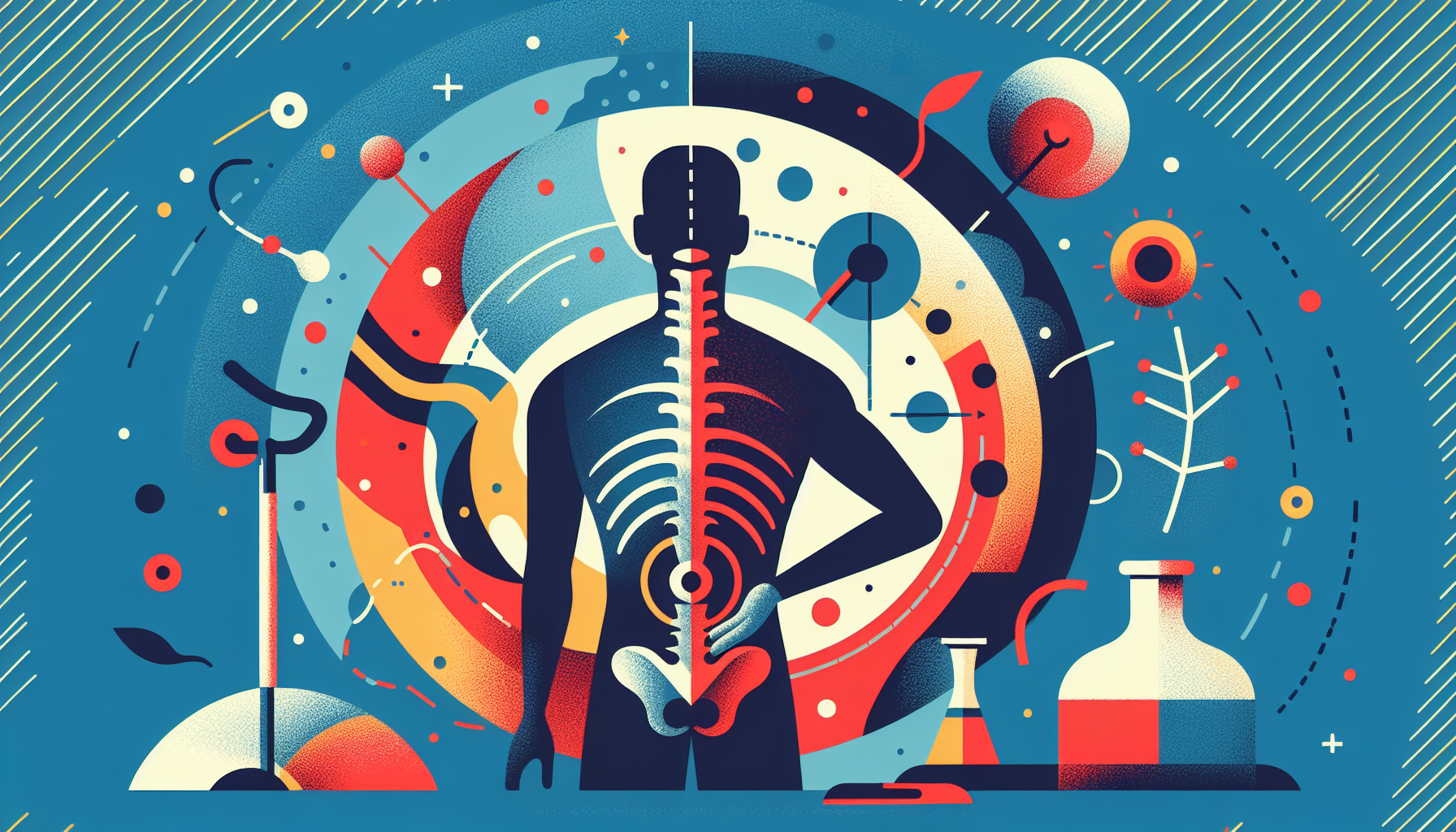Back pain can be a sudden and debilitating experience, leaving you wondering about the cause. One common culprit is a herniated disk, which occurs when there's a tear or puncture in a disk in your spine. In this article, we'll explore the symptoms, diagnosis, and treatment options for herniated disks, helping you better understand this condition.
What is a Herniated Disk?
Your spine consists of 24 bones called vertebrae, with disks between them that allow for movement and flexibility. Each disk has a soft, jelly-like center (nucleus pulposus) and a tough outer band (annulus fibrosus). A herniated disk happens when the outer band tears or ruptures, causing the inner nucleus to leak into the spinal canal.
Herniated Disk vs. Bulging Disk
While herniated disks and bulging disks share some symptoms, they are different conditions:
Herniated disks are often caused by acute, sudden injuries, while bulging disks typically develop gradually due to age-related wear and tear.
Herniated disks usually affect one spinal disk at a time, while multiple disks can be affected simultaneously in the case of bulging disks.
Herniated disks are more common in people aged 30 to 50, particularly men, while bulging disks generally occur around age 40 and older.
Symptoms of a Herniated Disk
Symptoms of a herniated disk vary depending on the location and severity of the injury. Common symptoms include:
Sharp, burning, or shooting pain in the lower back, buttocks, leg, calf, or foot (lower back herniated disk) or in the neck, shoulder, or arm (neck herniated disk)
Numbness or tingling in the affected area
Muscle weakness surrounding the area of pain
Symptoms located on one side of the body
Pain from a herniated disk often worsens with activity and lessens with rest. Even coughing, sneezing, and sitting can aggravate symptoms due to increased pressure on pinched nerves.
When to Seek Emergency Care
While most cases of herniated disks can be treated at home, certain symptoms warrant immediate medical attention. Seek emergency care if you experience:
Severe pain that prevents you from performing daily activities
Leg or arm weakness
Infection or fever
Loss of feeling in the rectum or genital area
Bladder or bowel dysfunction
If you have a history of metastatic cancer, it's also crucial to have your condition checked by a doctor.
Diagnosing a Herniated Disk
To diagnose a herniated disk, your doctor will perform a physical exam and may order additional tests, such as:
X-rays to rule out other causes of pain, like fractures or tumors
Myelogram to locate pressure on the spinal cord
CT scan or MRI to create detailed images of the spinal cord and surrounding structures
Electromyogram (EMG) and nerve conduction studies (NCS) to detect nerve damage or compression
Treatment Options for Herniated Disks
Most cases of herniated disks heal on their own with rest, time, and occasional use of over-the-counter anti-inflammatory medications. During recovery, it's essential to avoid triggering exercises and activities. Applying ice can help ease pain in the initial onset, while heat can relax and soothe sore muscles in the following days and weeks.
If pain persists, your doctor may recommend:
Physical therapy to reduce pain, build supportive muscles, and teach correct posture and alignment
Pain relief medications and muscle relaxants
Steroid injections
Surgery (in severe cases)
Most people recover from a herniated disk within a few weeks or months. If your symptoms don't improve, consult your doctor for further evaluation and treatment options.
For more information on herniated disks and back pain, visit:
The Bottom Line
Most herniated discs resolve naturally within 3 months without surgery, but immediate medical attention is crucial for red flags like loss of bowel/bladder control, progressive weakness, or saddle anesthesia. If you're experiencing radiating leg pain or numbness that's interfering with daily activities, Doctronic can help determine whether your symptoms warrant urgent evaluation.


